Español | Français | Kreyol
Committee for Translinguistic Exchange and Translation (CTET)
(formerly the Translingual Working Group or TWG)/Comité de Traducción e Intercambio translingüístico CTET
The TWG, now CTET, was founded by a group of CSA members committed to addressing the challenges that result from the linguistic diversity of our region and its representation in the Caribbean Studies Association. Such challenges include the limited integration of scholars from non-Anglophone areas in the conferences and the uneven representation of our regional diversity in the CSA membership and governance, among other forms of fragmentation anchored in linguistic barriers.
Lack of communication and mutual recognition are obstacles not only to the CSA’s representativeness and sustainability, but also to the scholarly work of our members and the CSA’s overall mission. Determined to overcome such obstacles, in 2011 the President and the Executive Council supported the creation of the TWG. The greatest aim of this group has been to promote the consolidation of an association that would not only be more inclusive and collegial, but also academically more robust and truly representative of the diversity of Caribbean people, societies and cultures.
Building on previous initiatives by individual members and past presidents, the TWG has worked on identifying and gathering resources, as well as members’ support to promote a culture of multilingual exchange. Our tasks range from coordinating translation for the conference and year-long communications with our members, to advocating for actions that enrich exchange, as a means to enhance the transnational and interdisciplinary scholarship that the CSA is proud to foster. You can find a summary of our work below, including the policies and best practices approved by the Presidents and Executive Councils regarding translation and translingual exchange since the creation of this group. Considering the central role of this work for the organization of the annual conference and the Association as a whole, the 2014-2015 CSA President supported the transformation of the working group (the TWG) to a permanent committee (the CTET).
Continuous assessment of our initiatives, including a survey answered by about 200 members in 2013, tells us that a significant number of our members are multilingual, and that our members are more than willing to engage in multilingual practices as a permanent feature of the CSA. As we continue to grow into a culture of fluid multilingual exchange, we celebrate the engagement of more and more of our members, and hope for even more of them to enjoy the benefits of a broader projection of our scholarship and collegiality. The CTET will continue to work with the EC and the President to provide as many resources and support as possible, while fostering more collaboration of members themselves in making of the CSA an inclusive home beyond linguistic “fences”.
Committee Members
|
| SPANISH TRANSLATION TEAM |
|
|
|
|
|
| FRENCH TRANSLATION TEAM |
|
| ENGLISH TRANSLATION TEAM |
|
Summary of tasks, best practices and policies about translation and multilingual exchange:
- The CTET, formerly TWG, assists the President and the Program Committee (PC) with identifying volunteer translators for the CFP and all official communications sent to our members or posted in the CSA’s website.
- In coordination with the President and the local committee (LOC), the CTET is in charge of identifying translation needs, communicating with potential translators, and coordinating their services at the conference. The CTET assesses such needs depending on the location and in consideration of the languages of the communities hosting the conference every given year.
- A basic fund ($6000) was approved by the EC in 2011 for translation purposes. It is the president’s prerogative to assign additional funding as needed. The CTET works with the Presidents, LOC and the EC in identifying and pursuing the more affordable options for interpreting service, as well as alternative resources to pay for it.
- In order to facilitate articulation and implementation of the best practices for inclusiveness of members of all linguistic backgrounds, it was agreed by the EC that one member of the CTET should also be a member of the Program Committee. The tasks of the CTET/PC member include:
- Assisting in the translation of the CFP and letters to members;
- Helping with the implementation of previously approved practices such as submitting titles and abstracts in more than one language, sharing panel ideas, etc;
- Partaking in the organization of panels in ways that reflect the common interests of our members regardless of their linguistic skills
- Supporting the distribution of panels in rooms where translators are available.
- Looking forward to a more comprehensive approach to exchange among colleagues from different linguistic, regional and disciplinary backgrounds, the TWG/CTET continues to advise the EC, the President and the PC on initiatives that may enhance such exchange (i.e. recommending potential speakers and organizing plenaries or panels that address the diversity of our members from different disciplines and perspectives; creating a section in our website to share ideas for panels)
- Another priority of the TWG/CTET has been to not only attract and keep members from different backgrounds, but also to foster more participation and leadership among members of all of our linguistic areas. Some of the “best practices” so far implemented are: providing translation during the members’ meeting at the annual conference; and nominating EC members and/or targeting potential candidates that will represent our diversity.

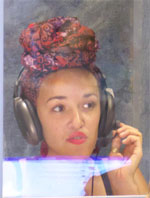 Sally K. Stainier, Chair
Sally K. Stainier, Chair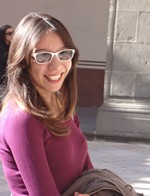 Susana C. Barradas
Susana C. Barradas Molly Hamm-Rodríguez
Molly Hamm-Rodríguez Rosana Herrero
Rosana Herrero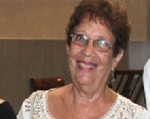 Ileana Sanz Cabrera
Ileana Sanz Cabrera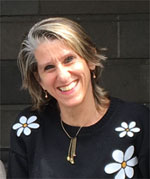 Maggie Shrimpton
Maggie Shrimpton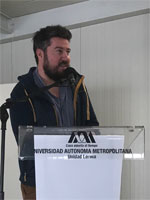 Samuel Jouault
Samuel Jouault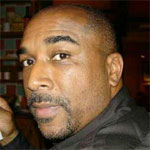 Shaun Biggart-Hutchinson
Shaun Biggart-Hutchinson